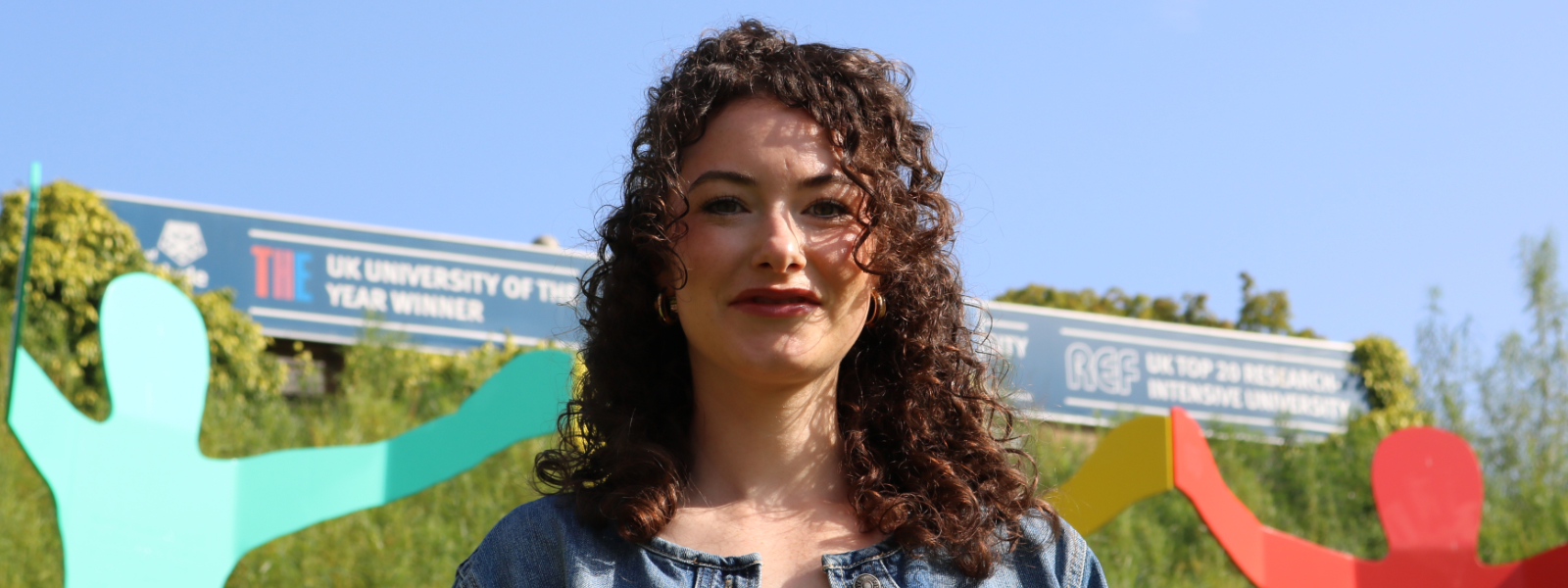
Claire, from Germany, is a student on the MSc International Relations within Strathclyde's Department of Government & Public Policy
Tell us a little about your journey to studying the Masters in international Relations.
I am originally from Germany, and after a gap-year in Edinburgh as an au pair, I decided to return to Germany and start studying in Berlin. However, I soon realised that my heart was in Scotland and so decided to return. I then begun my Undergraduate degree in Philosophy, Politics and Economy at the University of the Highlands and Islands.
I loved my undergraduate degree and during this course I was able to select a wide variety of courses. In year three and four I was particularly drawn to international politics subjects which later inspired my choice for my Masters degree.
What have you enjoyed most about the Masters?
I have always enjoyed learning to see topics and issues from a wide variety of perspectives which is why I enjoyed my undergraduate degree. This experience and ability served me very well in my postgraduate degree. It felt like the lecturers made a conscious effort to highlight different perspectives. In the international relations courses this was further enhanced through debates. Having people from all walks of live always ensured interesting and stimulating debates.
My undergraduate was predominantly remote. For my Masters degree, I enjoyed the face-to-face lectures and classes and to learn from and with others. It's safe to say that my fellow classmates not only enhanced my overall experience but also acted as a mutual support system.
Tell us about your dissertation topic.
My dissertation revolved around the Common Agriculture Policy of the European Union, but getting to that point was quite a journey. Throughout my degree, I explored different topics, never quite settling on one and feeling confident in my choice. Interestingly, I had come across this particular policy during my undergrad studies, finding it incredibly captivating. It wasn't until my European Politics course that things clicked into place. I presented on this policy, and my professor raised the question of why I hadn't chosen it for my dissertation. That conversation lit a spark. Together with the help of my supervisor I was able to find a unique angle and research gap.
In the end, I genuinely enjoyed the topic I ended up with. Looking back, my dissertation was quite a journey- from topic uncertainty to enthusiastic exploration.
What advice would you give to someone considering applying to the MSc International Relations?
I would suggest first cultivating a well-defined understanding of your objectives for the course. From there, establish a structured daily routine to maintain focus on the semester's coursework, as time tends to fly by. Additionally, it's beneficial to already have a research topic in mind. This could provide a helpful anchor, keeping your focus sharp and consistent throughout the course duration.
I really felt that time-management was super important. During the week I tried to read the weekly material in order to go prepared into classes. At the beginning of the semester I also wrote down all the dates for my assignments so that I was always aware of upcoming deadlines.
What would you like to do in the future? How do you feel the MSc has helped you prepare?
My aspirations for the future are to work in an internationl policy setting such as the European Union. My postgraduate degree has equipped me with a robust foundation of knowledge and practical skills that I believe will serve as a strong foundation for pursuing this path. The course has not only deepened my understanding of the intricate international policy dynamics but also provided me with critical thinking and problem-solving abilities through engaging classroom discussions and real-world case studies.
Furthermore, the opportunities for collaboration with diverse peers and exposure to various perspectives have broadened my outlook and enriched my communication skills, all of which I consider essential in the realm of international policy.
